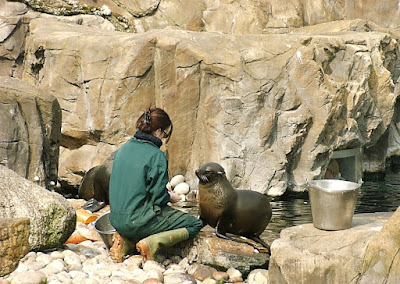This blog may help people explore some of the 'hidden' issues involved in certain media treatments of environmental and scientific issues. Using personal digital images, it's also intended to emphasise seasonal (and other) changes in natural history of the Swansea (South Wales) area. The material should help participants in field-based modules and people generally interested in the natural world. The views are wholly those of the author.
Friday, 2 September 2022
Bristol Zoo Closure
Bristol Zoo opened in 1836, making it the 5th oldest in the world. A combination of the economic pressures of the Covid19 pandemic and difficulty of heating some of its Victorian buildings, is forcing the Bristol Zoological Society to close and sell its Clifton site, after 186 years. Many of its animals will be moved to the Wild Place Project in South Gloucestershire (also owned by the Bristol Zoological Society). The Wild Place Project will eventually open as a 55 hectare 'walking safari park', with more space and environmental enrichment for the animals. The move will also take the beasts away from damaging city-centre traffic fumes (https://www.bbc.co.uk/newsround/62763823). For many years, I took groups of students to Bristol Zoo (some of the diverse critters are illustrated). I even saw my niece get married there!
Subscribe to:
Post Comments (Atom)
-
I n the UK and US, a pparently popular and successful vegan/vegetarian restaurants are reportedly closing or adding meat to their menus ( ...
-
Early ripening fruit may seem convenient but some folk think it confirms environmental stress. There's also a possibility th...


























%20mating%20NWCW.jpg)


No comments:
Post a Comment